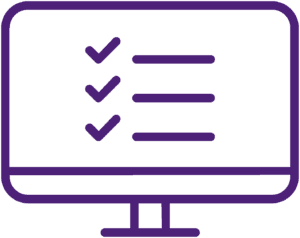Nurse unit managers are an integral part of any healthcare system. Nurses are known for their ability to work autonomously, but even they need an effective manager to be successful.
Nurse unit managers are at a level of management where they need to be active in the daily comings-and-goings of the unit, but also able to think about top-level strategies. This makes the role a uniquely challenging one.
To learn more about what nurse unit managers do, read our complete guide.
What is a Nurse Unit Manager Role?

A nurse unit manager is a Grade 7 role. Nurse unit managers essentially do what their title says – they manage the other nurses in their unit. This can take place in a hospital or in community nursing roles such as outpatient clinics.
Nurse unit management is the first level of management where the roles become more focused on strategy and administration than on providing care. While they are still involved in care, their job is to improve care by managing the unit, not by treating patients one on one.
The Main Responsibilities of a Nurse Unit Manager
The main responsibilities of a nurse unit manager vary but can be thought of as falling into two categories. They manage the team that is subordinate to them, and they represent and advocate for that team to their superiors.
The following are the main responsibilities of nurse unit managers.
1. Implementing Care Policies
What really separates you as nurse unit manager from the rest of your team is your ability to action large-scale care policies. This lets you help countless patients without being directly involved because your team will put the theory into practice. The 6 C’s are a good example of macro-level changes having a trickle down effect through an entire healthcare system.
It’s incredibly important that you don’t neglect this part of your nurse unit manager role. Day-to-day activities are important and often feel urgent, but improving the overarching processes is the pathway to creating lasting change.
2. Latest Medical Developments
If you are going to design and implement new processes, you need to be up to date with the latest medical trends and breakthroughs. As a nurse unit manager, learning doesn’t end after you become a nurse or when you complete your nursing degree. You need to take the initiative to maintain your education.
A great way to do this is through self-education. Seminars, subscriptions to scholarly journals and newsletter, and even adding diplomas or post-graduate studies to your degree can keep you on the cutting edge of medical knowledge. Plus, since they are directly benefiting you in your role – they are tax deductible!
3. Team Management
As a nurse unit manager of a wider team of nurses, you need to manage their activity and their performance. That means organising their schedules and making sure there’s enough coverage at all times to maintain nurse to patient ratios. For a team to function in Australia’s biggest hospitals, effective scheduling is crucial.
You also need to make sure that adequate standards are being maintained. This applies to treatment processes and outcomes, but also to ensure patient satisfaction. If nurses in your unit aren’t performing, you need to be able to respond accordingly and hold them accountable.
4. Recruitment
Like any workforce, there is always a turnover rate that you need to take into account. Maintaining effective staff levels requires more than clever rostering. At some point, if people keep leaving but you don’t replace them it’s going to lead to shortages.
Nurse unit managers are responsible for foreseeing these shortages and preventing them by recruiting high-quality staff. If you are in remote or rural areas where applicants are sparse, this process can be quite challenging. In these cases, it’s a smart idea to turn to nursing agencies for support.
5. Managing Budgets
The Australian healthcare system is an enormous infrastructure that relies on each of its parts having the funding they need to take care of patients. For this delicate balance to be maintained, each part can’t exceed its budget or else it will cost another part.
As a nurse unit manager, you’re responsible for your unit’s budget. Everything you need costs money. This can include:
- Staff
- Supplies
- Utilities
- Maintenance
- Insurances
It’s your responsibility to make sure you get the most out of your budget, and also that you put forward considered and evidence based arguments to increase your budget where you believe it is justified.
6. Liaising with Interdisciplinary Teams
There are many more roles in a unit than just nurses. Not only are there all different types of nurses, but there are also interdisciplinary staff. These can include:
- Doctors
- Specialists
- Psychologists and psychiatrists
- Disability support workers
- Public and community notaries
- Other members of management
All of these people play a crucial role in the healthcare system, and you need to ensure that you and your team are as cooperative as possible when working with them.
As a nurse unit manager, the biggest challenge you’ll need to overcome when working with people from other disciplines is communicating effectively. Bear in mind that they may have different levels of knowledge, different naming conventions and different priorities to you. It’s your responsibility to account for these.
What Skills Does a Nurse Unit Manager Need?
Nurse unit managers need a range of skills to be effective in their roles. These include:
- Effective communication
- Forward planning
- Conflict resolution
- Leadership
- An ability to train others
- Time management skills
- Critical thinking
For a complete outline of these skills, we’ve created some resources for you.
Learn the Top 8 Most Overlooked Skills in Nursing
Discover 10 Top Tips for Effective Nursing Management
Have You Considered a Nursing Agency?
To become a nurse unit manager, you first need to gain experience as a regular nurse. To truly experience everything being a nurse has to offer, you should consider joining a nursing agency.
At Nurses Now, our nurses are all excellent examples of what it means to be an effective nurse. We are always looking for new passionate professionals to join the family, and you could be one of them.
If you are interested, visit our website for more details. Or, if you are ready to join, get in touch today.



